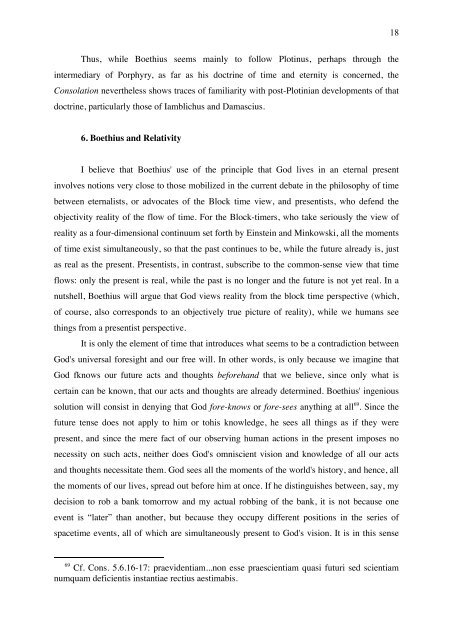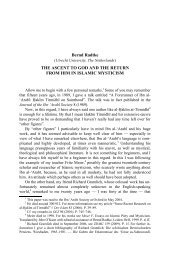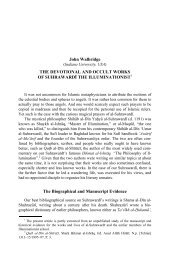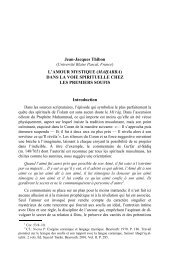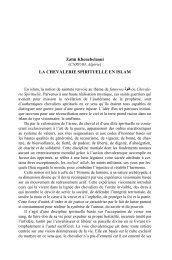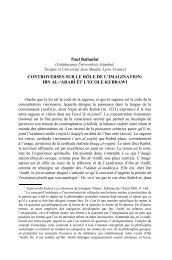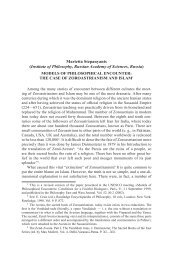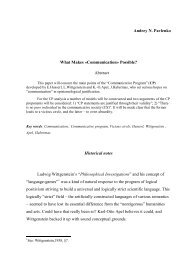Bothius talk DEF
Bothius talk DEF
Bothius talk DEF
Create successful ePaper yourself
Turn your PDF publications into a flip-book with our unique Google optimized e-Paper software.
18<br />
Thus, while Boethius seems mainly to follow Plotinus, perhaps through the<br />
intermediary of Porphyry, as far as his doctrine of time and eternity is concerned, the<br />
Consolation nevertheless shows traces of familiarity with post-Plotinian developments of that<br />
doctrine, particularly those of Iamblichus and Damascius.<br />
6. Boethius and Relativity<br />
I believe that Boethius' use of the principle that God lives in an eternal present<br />
involves notions very close to those mobilized in the current debate in the philosophy of time<br />
between eternalists, or advocates of the Block time view, and presentists, who defend the<br />
objectivity reality of the flow of time. For the Block-timers, who take seriously the view of<br />
reality as a four-dimensional continuum set forth by Einstein and Minkowski, all the moments<br />
of time exist simultaneously, so that the past continues to be, while the future already is, just<br />
as real as the present. Presentists, in contrast, subscribe to the common-sense view that time<br />
flows: only the present is real, while the past is no longer and the future is not yet real. In a<br />
nutshell, Boethius will argue that God views reality from the block time perspective (which,<br />
of course, also corresponds to an objectively true picture of reality), while we humans see<br />
things from a presentist perspective.<br />
It is only the element of time that introduces what seems to be a contradiction between<br />
God's universal foresight and our free will. In other words, is only because we imagine that<br />
God fknows our future acts and thoughts beforehand that we believe, since only what is<br />
certain can be known, that our acts and thoughts are already determined. Boethius' ingenious<br />
solution will consist in denying that God fore-knows or fore-sees anything at all 69 . Since the<br />
future tense does not apply to him or tohis knowledge, he sees all things as if they were<br />
present, and since the mere fact of our observing human actions in the present imposes no<br />
necessity on such acts, neither does God's omniscient vision and knowledge of all our acts<br />
and thoughts necessitate them. God sees all the moments of the world's history, and hence, all<br />
the moments of our lives, spread out before him at once. If he distinguishes between, say, my<br />
decision to rob a bank tomorrow and my actual robbing of the bank, it is not because one<br />
event is “later” than another, but because they occupy different positions in the series of<br />
spacetime events, all of which are simultaneously present to God's vision. It is in this sense<br />
69<br />
Cf. Cons. 5.6.16-17: praevidentiam...non esse praescientiam quasi futuri sed scientiam<br />
numquam deficientis instantiae rectius aestimabis.


